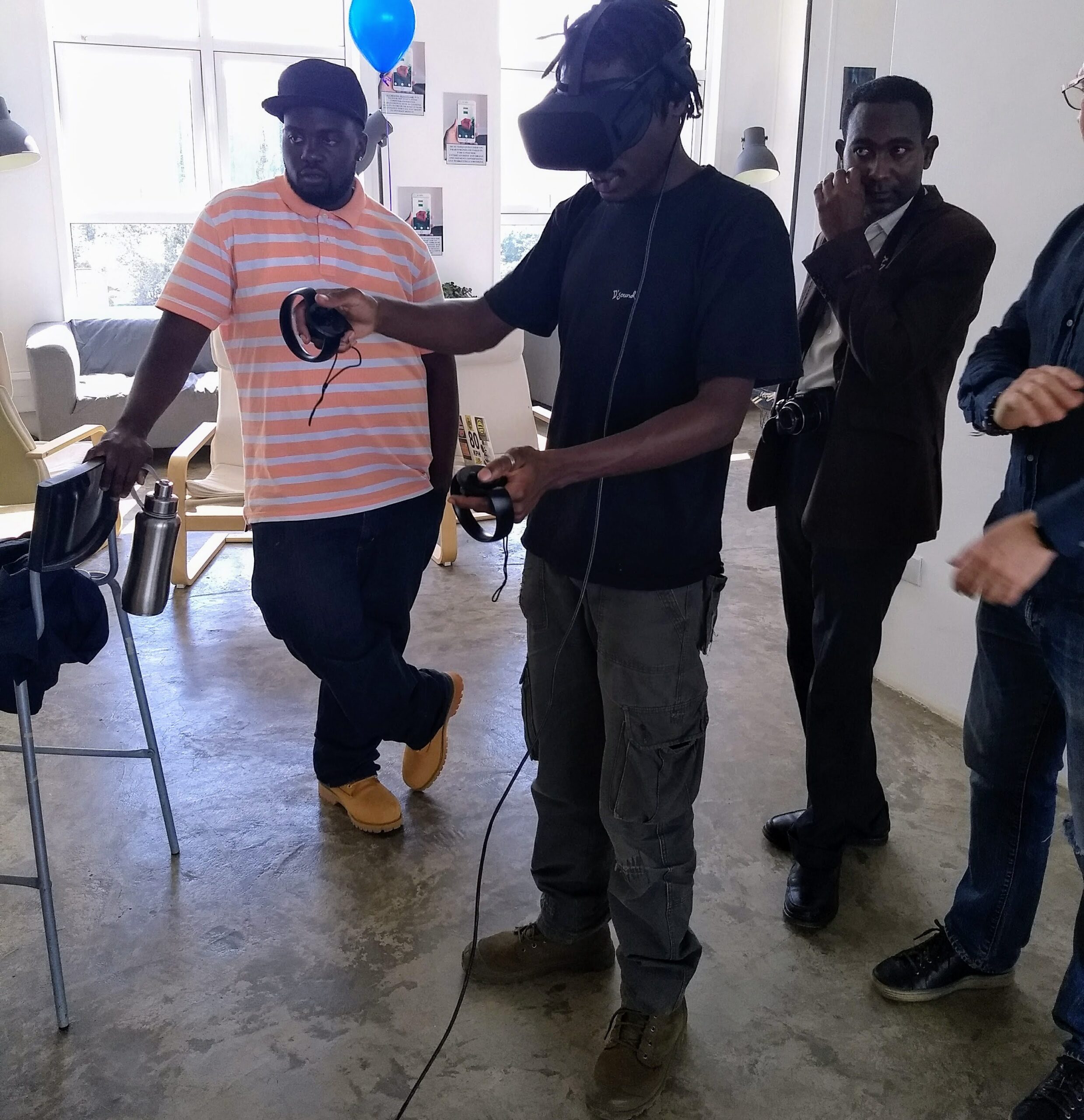
Virtual Reality more than just fun and games
Under the banner “Creating our Future” some of East Africa’s brightest and most tech-savvy minds gathered in Nairobi for the first ever 360 Afrika Forum AR/VR Hackathon.

360 Afrika Forum joined forces with Nairobi Garage and several other tech firms to host the event.
The hackathon was part of a 7 country event sponsored by Facebook and organised by Imisi 3D and AR/VR Africa country partners.
For 48 hours six different teams huddled at Nairobi Garage’s facility in Nairobi to devise innovative ways to use augmented and virtual reality (AR/VR) devices and apps to better serve society.
360 Afrika Forum program coordinator Michelle Mboya hopes this hackathon and similar events throughout Africa not only level the playing field regarding who gets to use emerging story technologies, but inspire a new generation of individuals to create technology-based solutions to real problems as well as tech-based stories consumable to everybody.
“A lot of the people here at the hackathon don’t have backgrounds in tech. Many of us here are artists, animators, educators, business people,” Mboya says. “We all want to help democratize tech, expand it toward justice and teach people how to use tech to tell better stories.”
She also says getting Africans to realize the benefits and potential of not only AR/VR but other high technology is crucial to making sure Africa isn’t left behind when it comes to technology and global business.
“In certain areas, like mobile communicating and business, Africa’s tech infrastructure is quite good,” says Mboya. In other areas, Africa is very nascent. In media technology, Africa’s at a disadvantage, and the goal…or what should be the goal of events like these is finding out how we can do this, from a tech perspective how can we show Africa is in the game.”
Representatives from Team Burble, the winners of the hackathon think they have an idea that can accomplish that. Their project aims to use AR/VR technology in education.

The idea is to supply schools with virtual field trips for students. Students using the AR/VR devices can take virtual tours of national parks and reserves or anywhere in the world. Through Team Burble’s use of virtual reality, schools can bring the world to a student when resources or time make it impractical for the schools to send students on physical tours. Teachers can also use the virtual tours to better connect pupils with the reality of what is in their text books.
In the U.S. and Europe, virtual reality technology holds promise as an educational tool for children’s cognitive and emotional development. And according to a report from the U.S. based financial giant Goldman Sachs, as the price of virtual and augmented reality headsets continues to fall, the number of educational users will jump significantly, up to an estimated 15 million by 2025.
The new technology does have its critics.
A new report by Common Sense, found many parents are concerned about health effects, such as increased eyestrain, headaches and dizziness sometimes associated with prolonged use of AR/VR. Other groups express concerns about the potentially addictive nature of virtual reality games even as tools used in education.
Douglas Ogeto, founder of Fuse Catalysts, another co-sponsor of the hackathon, understands those concerns.
Ogeto readily admits that to a lot of people not familiar, not interested or perhaps even intimidated by the world of augmented and virtual reality, AR/VR enthusiasts are simply viewed as a group of “techies” who play video games all day. Both he and Mboya are also well aware of the anti-social stigma often associated with gamers. Ogeto says reducing that stigma was one of the reasons why he was so eager to be a part of the 360 Afrika Hackathon.
“Events like this can hopefully reduce some of the negative opinions of gaming and of gamers, but it’s more than that,” Ogeto says. “It’s also about a creating a mind shift about technology…it’s about demystifying technology and getting people to realize how AR/VR and technology can impact society in a positive way, that it isn’t just solely entertainment.”
That partially explained why Team Burble’s AR/VR education app won the hackathon. Hackathon judges said Team Burble’s project was not only easy to use and entertaining, but offered a product that is useful, needed and above all, ready to go to market.
The other competing hacker teams submitted AR/VR projects that tackled everything from climate change and saving Africa’s forests to addressing social justice concerns. All the teams say they enjoyed taking part and were impressed by the creativity of their competitors.
Both Nairobi Garage and 360 Afrika Forum say they look forward to organizing and hosting more hackathons and AR/VR events throughout the year.






